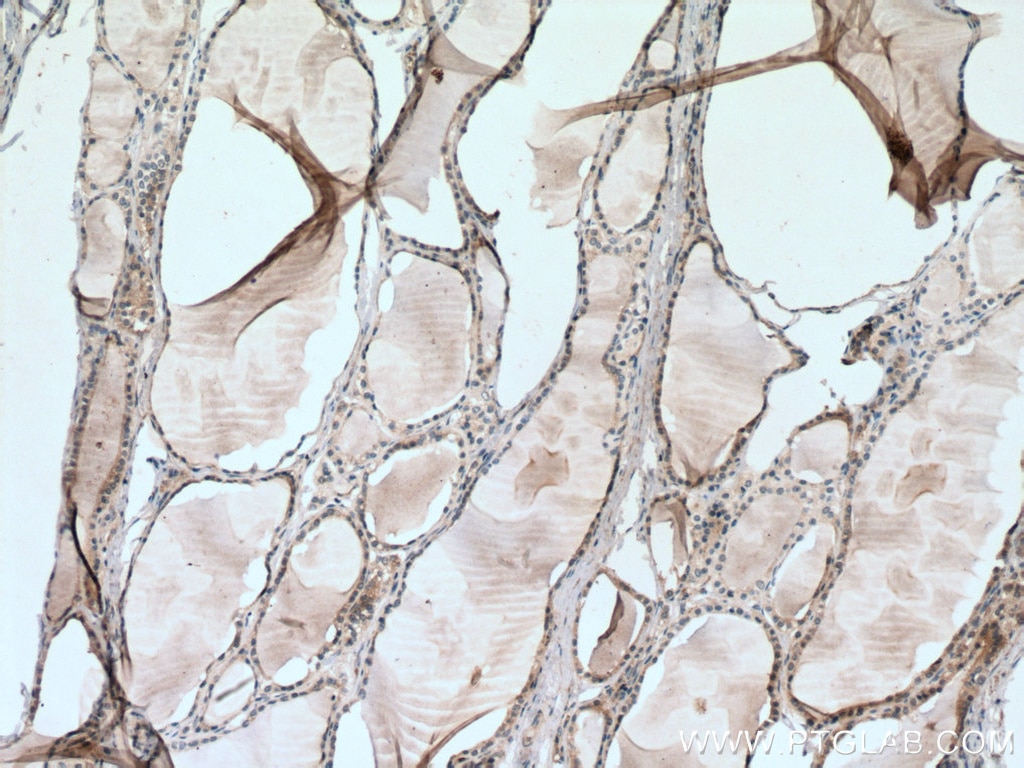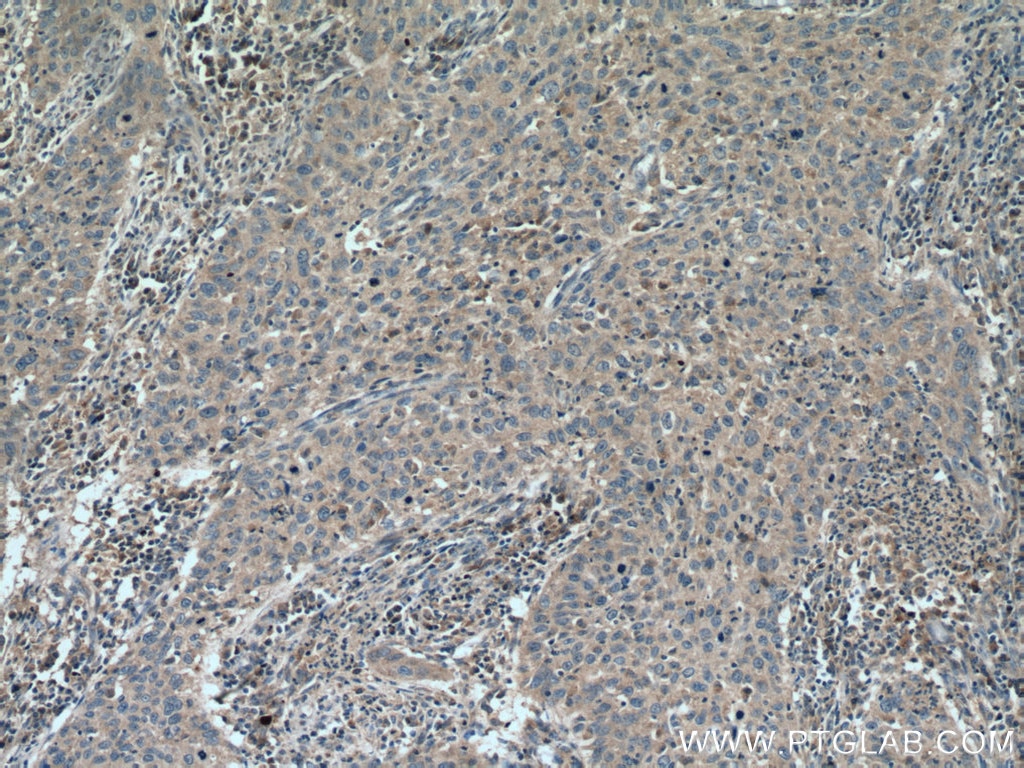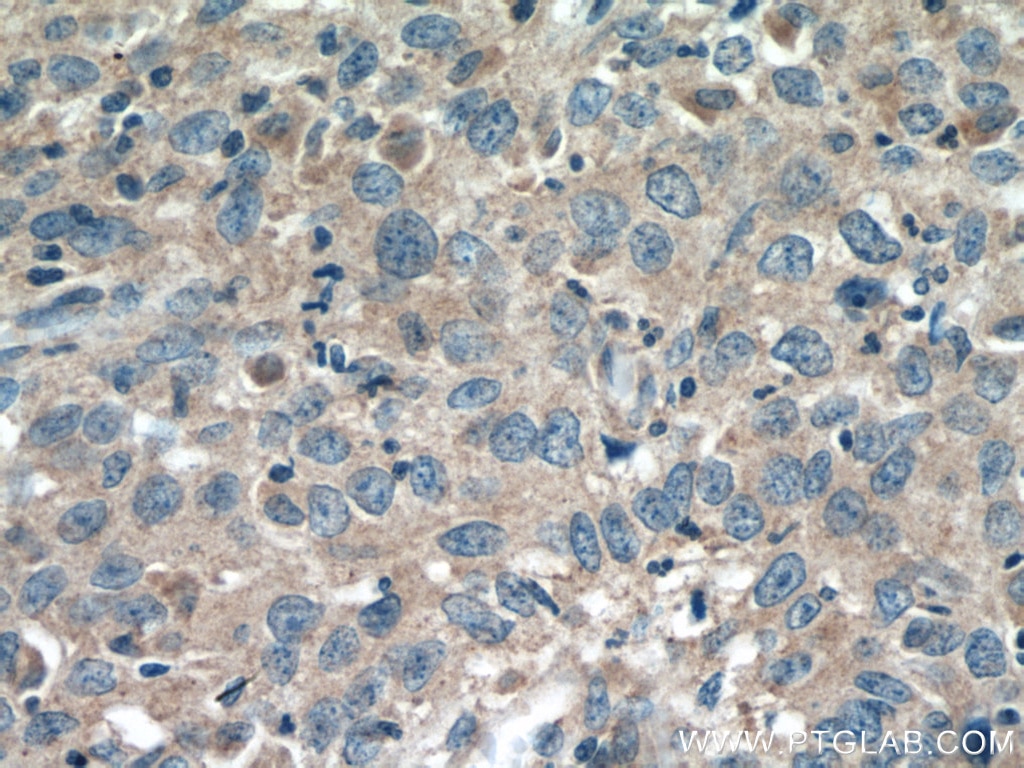Validation Data Gallery
Tested Applications
Recommended dilution
| Application | Dilution |
|---|---|
| It is recommended that this reagent should be titrated in each testing system to obtain optimal results. | |
Product Information
19177-1-PBS targets SFRP5 in IHC, Indirect ELISA applications and shows reactivity with human, mouse, rat samples.
| Tested Reactivity | human, mouse, rat |
| Host / Isotype | Rabbit / IgG |
| Class | Polyclonal |
| Type | Antibody |
| Immunogen | SFRP5 fusion protein Ag5715 相同性解析による交差性が予測される生物種 |
| Full Name | secreted frizzled-related protein 5 |
| Calculated molecular weight | 36 kDa |
| GenBank accession number | BC050435 |
| Gene Symbol | SFRP5 |
| Gene ID (NCBI) | 6425 |
| Conjugate | Unconjugated |
| Form | Liquid |
| Purification Method | Antigen affinity purification |
| UNIPROT ID | Q5T4F7 |
| Storage Buffer | PBS Only |
| Storage Conditions | Store at -80°C. |
Background Information
Secreted frizzled-related protein 5 (SFRP5) is an anti-inflammatory adipokine whose expression is perturbed in models of obesity and type 2 diabetes. SFRP5 is secreted by adipocytes and that it controls the micro-environment of white adipose tissue under conditions of metabolic stress (PMID: 20558665). SFRP5 gene consists of 317 amino acid residues and 3 coding exons and maps to chromosome 10q24.1 in humans. SFRP5 was initially found to be highly expressed in retinal pigment epithelium cells and moderately expressed in the pancreas. SFRP5 is involved in the pathological process of obesity, insulin resistance, dyslipidemia, inflammation, and fibrosis and is associated with obesity, T2D, and ASCVD (PMID: 31199714, PMID: 32004418).


